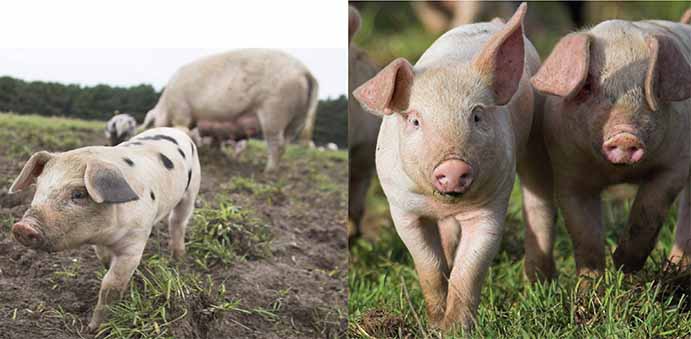New guidance outlining a pioneering new approach for farm assurance schemes, retailers and farmers to improve animal welfare has been released following a six-year project with the Soil Association, RSPCA and University of Bristol.
The new AssureWel Manual is shifting the way assurance schemes look at welfare by focusing on the individual animal and looking at ‘welfare outcomes’ resulting from conditions animals are kept in, such as their physical health and behaviour.
The manual provides a framework designed specifically for use during a farm assurance scheme audit, which traditionally would only have assessed the “inputs”, such as diet and how much space each animal is given, without guidance for assessing how effective those resources and management are at directly providing a good level of welfare for the individual animals.
The AssureWel approach covers how to develop, train and use welfare outcomes within the farm assurance context to improve animal welfare. Examples of measures developed include assessing feather loss on laying hens, injuries, body condition and lameness on dairy cows, how pigs are using enrichment items provided such as straw and destructible toys, as well as levels of mortality and their causes.
The protocols are now used by Soil Association Certification and RSPCA Assured, and a number of other schemes such as Red Tractor, Global Animal Partnership and Animal Welfare Approved also use or recommend their use.
Kate Still, livestock advisor at the Soil Association, said: “We want to ensure that all farm animals have the opportunity for a good life, and the only way of properly checking that the resources provided combined with the quality of day-to-day husbandry is delivering this, is to directly assess the condition of the animals, rather than the method of production alone.
“It is essential for assurance schemes to define and evaluate clear inputs standards for providing high levels of animal welfare, but we also need to make sure that we have robust measures for assessing the animal’s wellbeing after those resource standards have been applied.”
The manual outlines the four key elements of the AssureWel approach to improving farm animal welfare, as well as providing advice on how to implement the approach and help others to do the same.
The four elements covered in the manual are:
- Developing welfare outcome assessment protocols that are fit for purpose;
- Training and standardising assessors to ensure competence and consistency;
- Using assessment results to refine farm management and improve animal welfare; and
- Engaging with industry to maximise impact.
The AssureWel Manual was launched at the 2018 AssureWel International conference hosted by Global Animal Partnership in Maine, USA.




